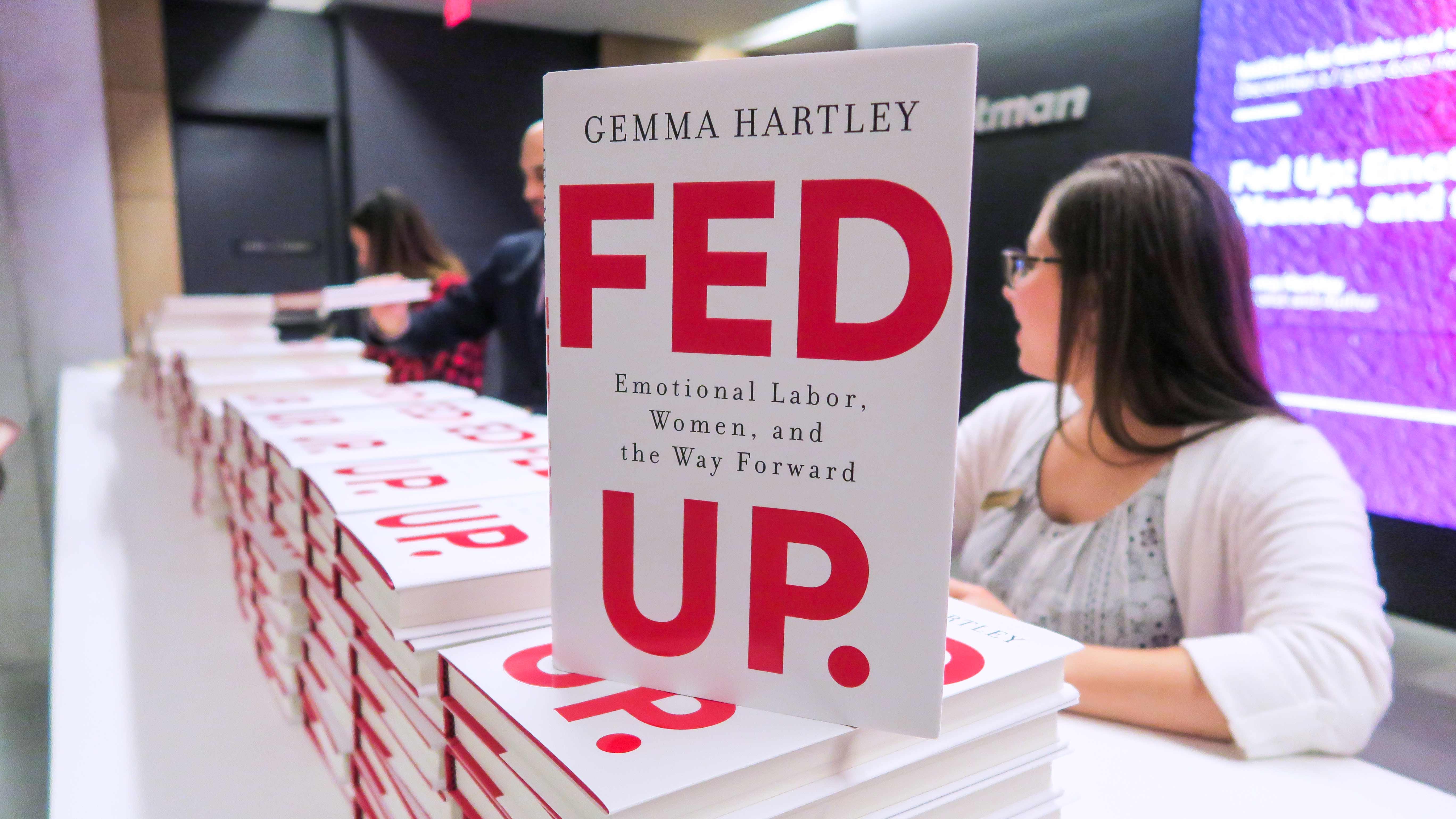Gemma Hartley, journalist and author, joined us at Rotman on December 03 to discuss her latest book, “Fed Up: Emotional Labor, Women, and the Way Forward.” In her book, Hartley aims to make “the invisible visible” by highlighting the emotional labour women carry out at work, home, in relationships, and in parenting.
In “Fed Up,” Hartley expands the definition of “emotional labour” developed by sociologist Arlie Hochschild in her 1983 book, “The Managed Heart,” to include “emotion management and life management.” Hartley writes, “[emotional labour] is the unpaid, invisible work we do to keep those around us comfortable and happy. It envelops many other terms associated with the type of care-based labour I described in my article: emotion work, the mental load, mental burden, domestic management, clerical labour, invisible labour.” Hartley believes that it’s important to expand this definition because emotional labour has real implications on women’s careers. During the talk, she explained:
“We’re sort of on-call all the time. So, we can be at the office, but we’re not 100% there because we’re waiting [for something]…”
She continued, “Maybe we’re going to get a text asking where this child’s teddy bear is for the night…it really inhibits our work when we’re tied to the home in that way.”
Later in the discussion, Hartley also detailed how men and women are held to different standards when it comes to care-work and women are often the ones who are judged when this important labour at home (e.g. cleaning, dishes, scheduling kid’s activities, etc.) is not completed to perfection. Men, in contrast, are often praised for any attempt to perform this type of work. She said, “We demand mothers to be perfect…but the standards we set (for fathers) are different.” This is the social conditioning Hartley believes we have to overcome for men and women to equally share the work of home and family.
Hartley also highlighted the fault in the idea that women can “have-it-all,” which often refers exclusively to women (predominantly white women) who have the financial means to outsource care labour. It’s important to point out that often when this labour is outsourced, women of colour or immigrant women complete this work, and it’s also undervalued.
Hartley ended the conversation by reminding the audience that we need to continue talking about these issues in order to encourage change. She explained:
“We have to examine our own social biases; what we’ve been conditioned to do. The more women start to lean into their truth, and what they really want out of life, the more we’re going to feel normal about it and the less we’re going to judge each other for it. We really need to break that culture of silence that’s really been held up by the patriarchy for so long.”







